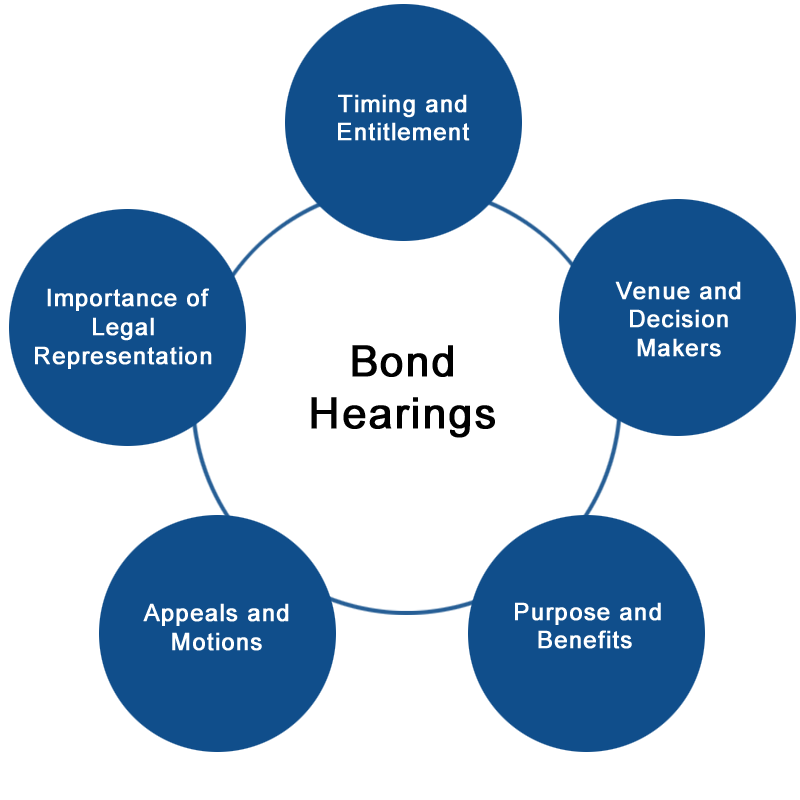
Bond Hearings in Louisiana – Bail Bond Hearings Denied, Reinstated, Revoked, Reduced, Reconsidered, and Appealed
Louisiana law entitles everyone to a bond hearing, establishing whether a defendant is eligible for bond, within the first 72 hours after being arrested with a warrant. In cases where a person was arrested without a warrant, they are entitled to a hearing within 48 hours of the arrest. The hearing itself will typically take place before a magistrate unless the nature of the offense requires a superior court judge’s decision.
If the bond hearing is successful, the defendant is allowed to remain free while they await trial. This not only keeps them out of jail, but also helps avoid impacts to their employment, financial situation, housing or property rights. If the bond hearing is unsuccessful, the defendant’s attorney may file a motion to appeal and request bond with a superior court.
Effective legal representation is key to securing bond and retaining freedom while awaiting trial. At The Claiborne Firm, we have intimate knowledge of the bond hearing process, and have helped countless clients secure their bond or see their bond restated after it had been revoked.
Securing Bail and Bond
While the terms are often use interchangeably, legally speaking, bail and bond have two different meanings. While each is a financial exchange that allows the defendant to be released from custody until their trial, bail is typically paid by the accused. Bond, on the other hand, is paid by a bail bondsman or a surety company on the defendant’s behalf. To secure their release, the defendant need only pay a portion of the full bail amount. If they fail to make their required court date, the surety company or bondsman will pay the full amount to the court.
Under Louisiana law, the power of whether to grant bail rests with the judge. There are a number of factors that they will consider in their decision, including:
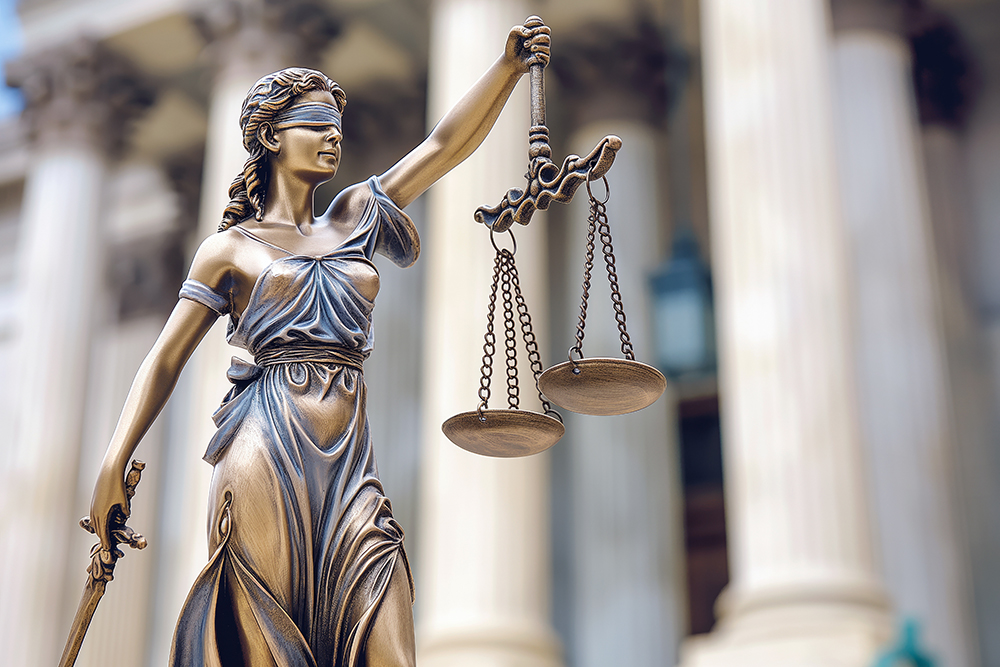
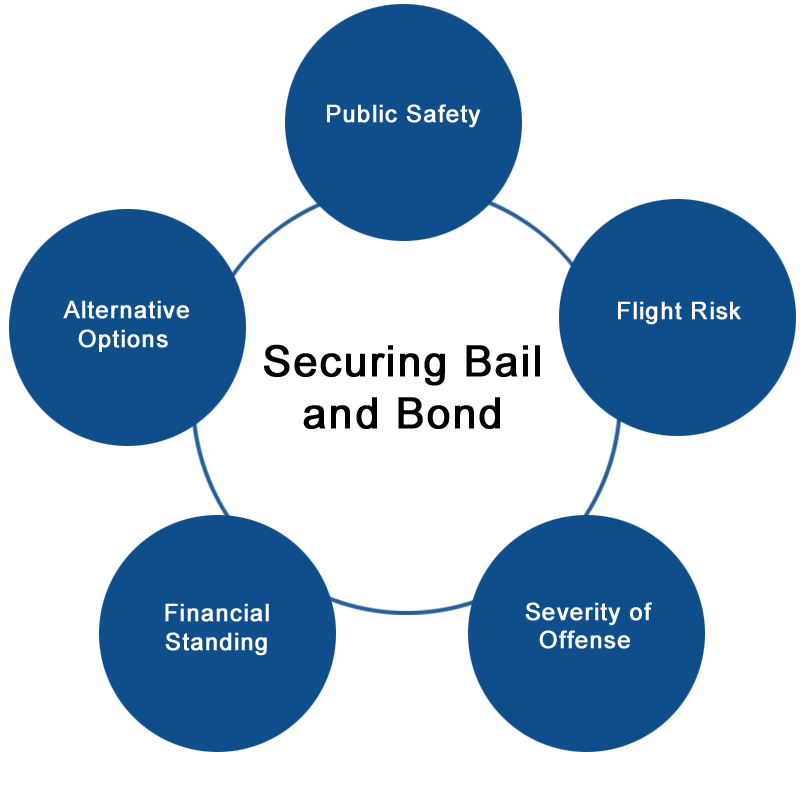
- Public Safety: Whether the defendant’s release may put another individual, or the community as a whole, in danger.
- Flight Risk: Whether the defendant is likely to flee the jurisdiction or fail to appear at future court appointments, based on their own history or on the judge’s assessment.
- Severity of Offense: Whether the nature of the alleged crime justifies detaining the defendant until trial.
- Financial Standing: Whether or not the defendant will even be able to afford the set bail or bond amount.
If the judge agrees to a bond amount and the defendant can pay it, they are free to go – under certain conditions – until their trial. If, however, they are unable to pay the amount set, they will likely remain in custody until trial, which can be several months. In certain cases, the court may review the defendant’s financial situation and offer alternative options ranging from releasing them on their own recognizance to reducing the bond amount.
Types of Bond Hearings and Gwen’s Law
There are generally two different types of bond hearings, the initial appearance and the bond revocation hearing. However, in the state of Louisiana there is a third type of hearing referred to as a “Gwen’s Law Hearing.” A special hearing in cases that involve violence or the threat of violence, this hearing is held within the first five days following an arrest. During a Gwen’s Law Hearing, the court will determine whether the accused poses a danger to their alleged victim and, if so, how to best protect them. This could include denying bail, thus ensuring that the accused remains in jail until their trial, or issuing protective orders for the victim’s safety.
The initial appearance hearing is generally held within 72 hours of the arrest, with the judge determining whether to grant bond or bail and the amount necessary. If bond or bail is granted, but the accused is unable to meet the conditions of that bond or bail – such as reoffending or failing to appear – they will be subject to a bond revocation hearing in which they could potentially be returned to jail until trial.
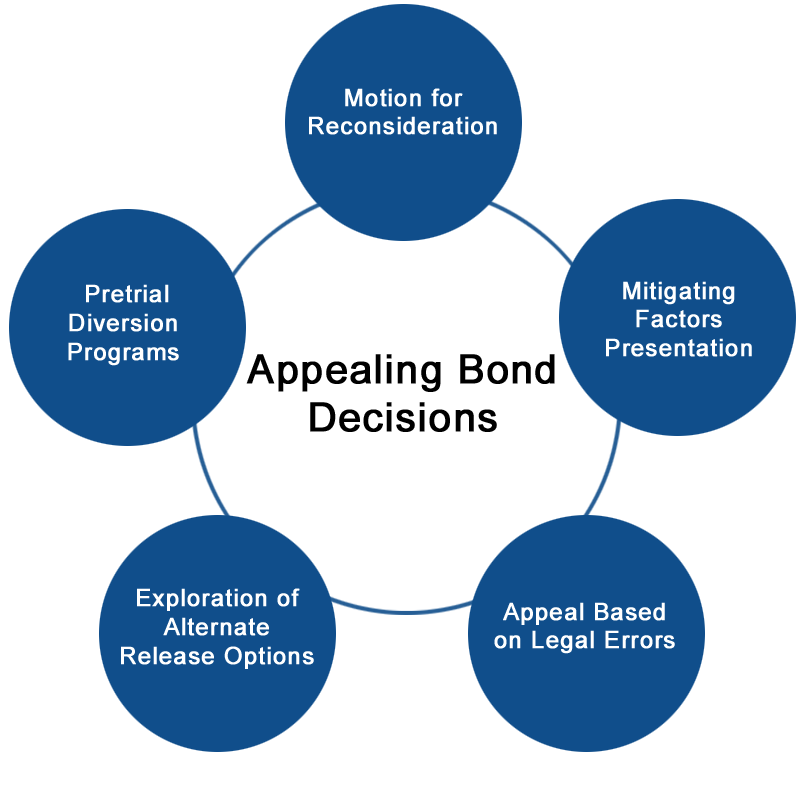 Appealing Bond Decisions
Appealing Bond Decisions
In some cases, a judge may deny bond during the initial appearance. When this happens, there are steps that an attorney can take to secure their clients’ release and safeguard their legal rights, including:
- • Filing what is known as a “Motion for Reconsideration.”
- • Presenting mitigating factors, e.g. employment status, community ties.
- • Appealing based on legal errors
- • Exploring alternate options for release
- • Offering participation in pretrial diversion programs
- • Offering ongoing support to defendant
If the judge determines to revoke bail or bond during a bond revocation hearing, they can issue a warrant for the defendant’s arrest as well as seize any collateral or funds that were provided as part of the initial bond agreement. As with an initial appearance hearing, there are steps that an attorney can take to have the bond reinstated:
- • Reviewing the circumstances: Examining the reasons given for revoking the bond and determining an appropriate legal strategy.
- • Presenting arguments: Showing through gathered evidence that the defendant’s bond should be reinstated, such as proving that any conditions cited in the revocation have been addressed.
- • Negotiating with prosecution: Working directly with prosecutors to agree on conditions that would allow for reinstatement of bond.
- • Filing a motion: Should negotiations not pan out, an attorney can file a motion directly with the court showing evidence why bond should be reinstated.
- • Appealing the decision: If the court does not agree to reinstate bond, it is possible for an attorney to appeal to a higher court.
Through it all, an attorney will serve as their client’s representative, advocating and presenting evidence on their behalf as they navigate the legal process.
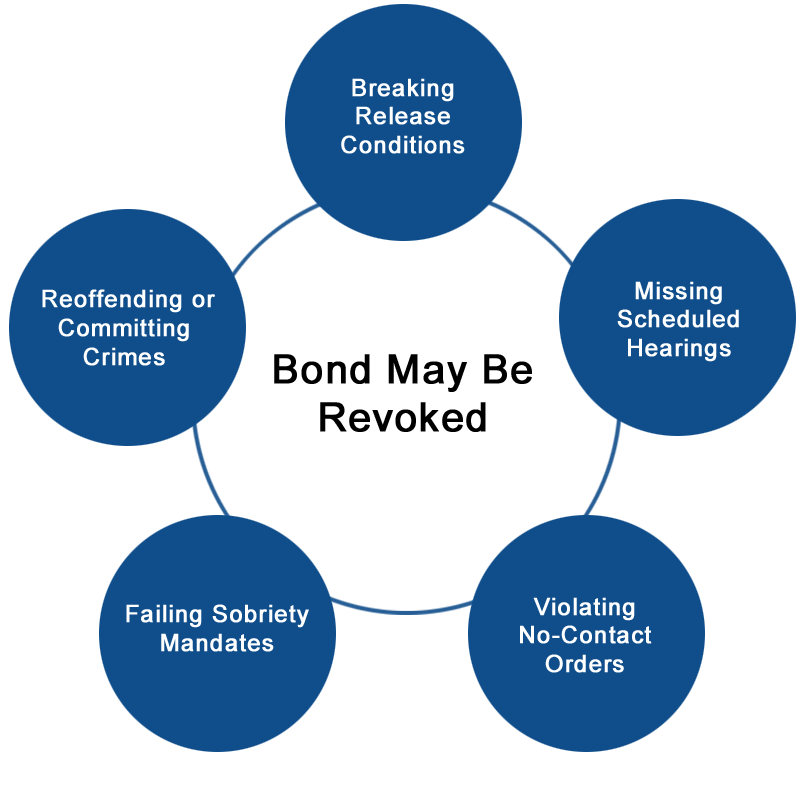 Reasons Why Bond May Be Revoked
Reasons Why Bond May Be Revoked
There are several reasons why bond may be revoked once it has been set at an initial appearance. A few of these include:
- • Breaking release conditions by violating curfew or failing to report to a probation officer.
- • Missing scheduled hearings, court dates, treatment programs or court-mandated counseling.
- • Violating no-contact orders issued to protect the alleged victim, or contacting witnesses in the case.
- • Failing to comply with court-mandated sobriety by failing a drug or alcohol test.
- • Reoffending or committing a separate crime.
- • Threatening public safety through criminal behavior.
- • Violating travel restrictions against leaving the jurisdiction.
- • Possession of prohibited items such as firearms.
- • Attempting to obstruct justice, for example, by means of evidence tampering.
- • Failing to pay restitution or fines levied by the court.
- • Associating with those known by the court to have a criminal history.
- • Behaving in a way that indicates the possibility of fleeing the jurisdiction or contravening court orders.
- • Violating any other conditions that may have been set by the court during the initial bond hearing.
Reconsidering, Appealing, Reducing or Removing Bond
Sometimes, an attorney can request a bond reconsideration, asking the court to change the conditions or reduce the amount of bond set. This is usually only an option when circumstances have changed since the initial bond hearing, such as the emergence of new evidence.
If there are legal errors in the initial bond decision, an attorney can file an appeal to a higher court on behalf of their client. If the higher court agrees to review the decision, they will weigh the evidence and testimony and determine whether to uphold or reverse the decision, or whether to modify the lower court’s ruling. An attorney can also file motions to reduce the set bond amount.
The prosecution also has the right to appeal the initial decision, arguing to increase or reduce the amount set based on newer evidence. For example, if the defendant poses a greater flight risk than initially determined, or presents a threat to the community, they may argue to increase the bond amount. If the defendant’s circumstances have changed, or they’ve incurred financial hardship, the state may argue to lower the bond amount.
If a defendant meets all obligations and conditions set by the court as part of their bond agreement, or if the conditions set no longer apply, an attorney can file a motion to have a bond removed or exonerated. In the case of exoneration, any funds or collateral paid would be returned to the individual who initially posted it.
If you or someone you love has seen their bond denied or revoked, or if an argument can be made that bond should be reinstated or reduced, The Claiborne Firm can help. We have a strong track record of helping people navigate this tricky legal process, protecting their rights, challenging the courts, and ensuring our clients are represented effectively. Call today to schedule a free, no-obligation evaluation of your case.
Call (504) 294-8552 or Schedule a Free Case Evaluation Online
